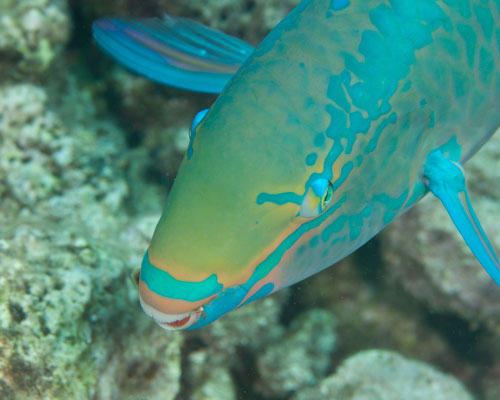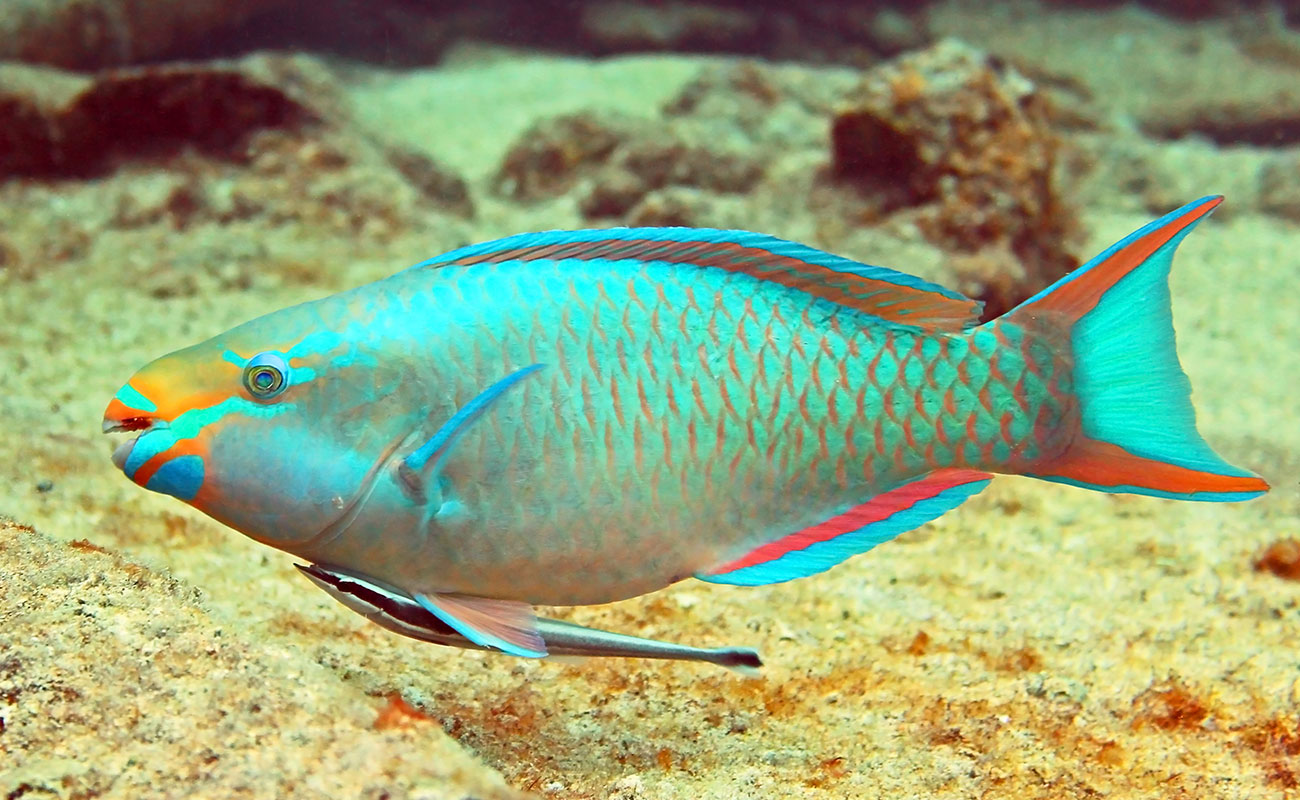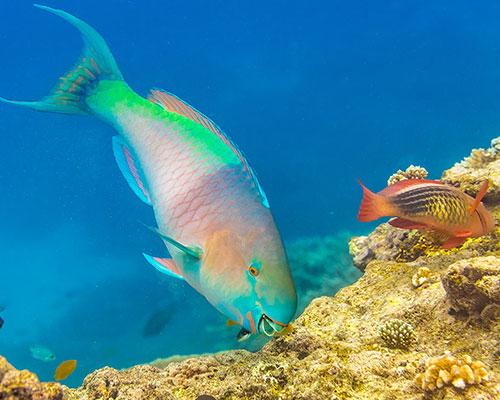Parrotfish are a common reef fish you will see while scuba diving and snorkeling in the Florida Keys. These fish are known for their vibrant colors. There are about 80 different species of parrotfish, in Key Largo and throughout the Florida Keys. Common species include midnight, rainbow, and princess parrotfish. Generally, a parrotfish can grow from 1-4 feet and can live from 5-7 years.
While scuba diving in Key Largo you may find that these fish can travel in groups up to forty. This is because parrotfish are very social. They can travel in harems, where groups of female parrotfish are led by supermales. Parrotfish can also go through sex changes throughout their lives! It is thought that this happens when a parrotfish population is low.
When your scuba diving in the Florida Keys, you can often hear crunching sounds on the reef, this is actually the sound of parrotfish feeding. Parrotfish like to eat the algae off of coral, the sound divers and snorkelers hear is the fish using its beak-like mouth (beak like a parrot) to grind coral chunks. Once the coral exits the digestive system it becomes sand, this is the sand that makes up a lot of tropical beaches. This process is very helpful for coral reefs, as it cleans the reef and keeps the corals healthy. If the parrotfish population were to decline on a coral reef, algae would take over and suffocate the corals. Parrotfish are very important to the coral reef ecosystem!
After a long day of grazing the coral reef, a parrotfish will find a safe place to sleep in the coral. Once it finds a good resting spot, it will release mucus from its mouth and create a cocoon that protects them from parasites. The cocoon also masks the scent of the parrotfish so that predators can’t find it. Creating this cocoon can take them up to an hour. If you’re doing a night dive in Key Largo be sure to look out for these underwater cocoons and never touch them!
Unfortunately, in many areas parrotfish are overfished and are eaten as a delicacy. Luckily, there are several organizations that are trying to protect parrotfish from being overfished to protect them and keep our reefs healthy. One of those organizations is The Nature Conservancy, who has a campaign called, “Pass on Parrotfish”, that aims at educating people about the importance of parrotfish to the coral reef ecosystem. Join Key Largo Scuba Diving for your next dive or snorkeling trip and check out the Parrotfish!


Why Key Largo Scuba Diving?
We have the best team in the Florida Keys
Dive the third largest barrier reef in the world
Full access to dive everything in Key Largo and beyond
Private Instruction and Group Classes
Warm water, amazing visibility, and World Class Dive Staff.
Key Largo Scuba Diving is your best way to dive and snorkel the Florida Keys. Our team of local experts are passionate about scuba diving, the Florida Keys, and making sure you have an amazing time in the Florida Keys. We are open late and have local experts standing by to help you build the Florida Keys Dive Vacation of a lifetime. Call us, text us, email us, or message us on web chat. We would love to help!

